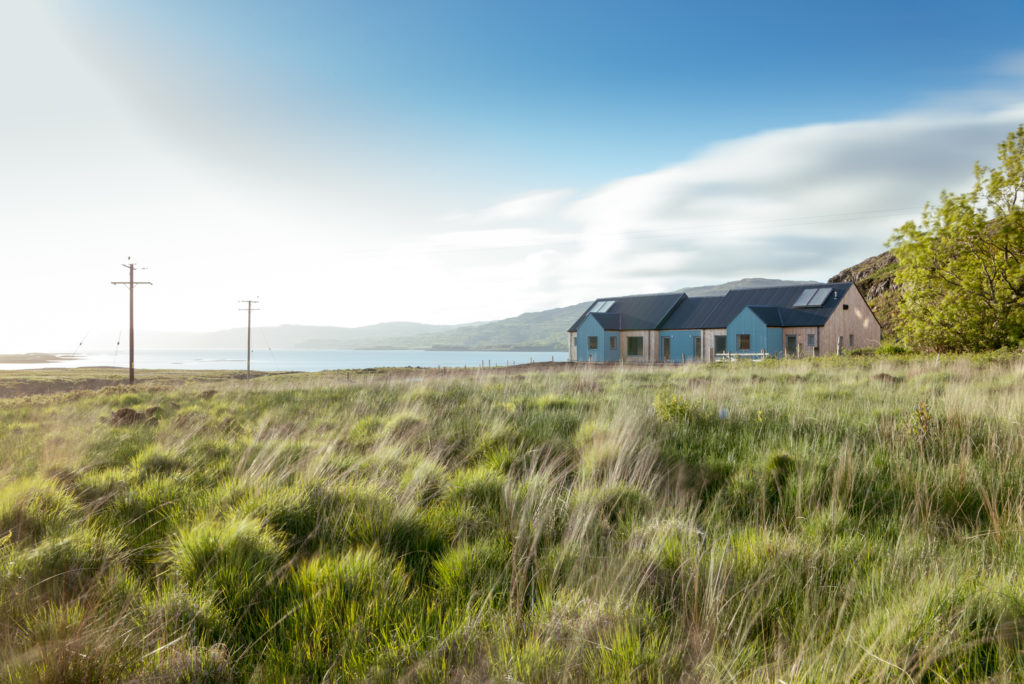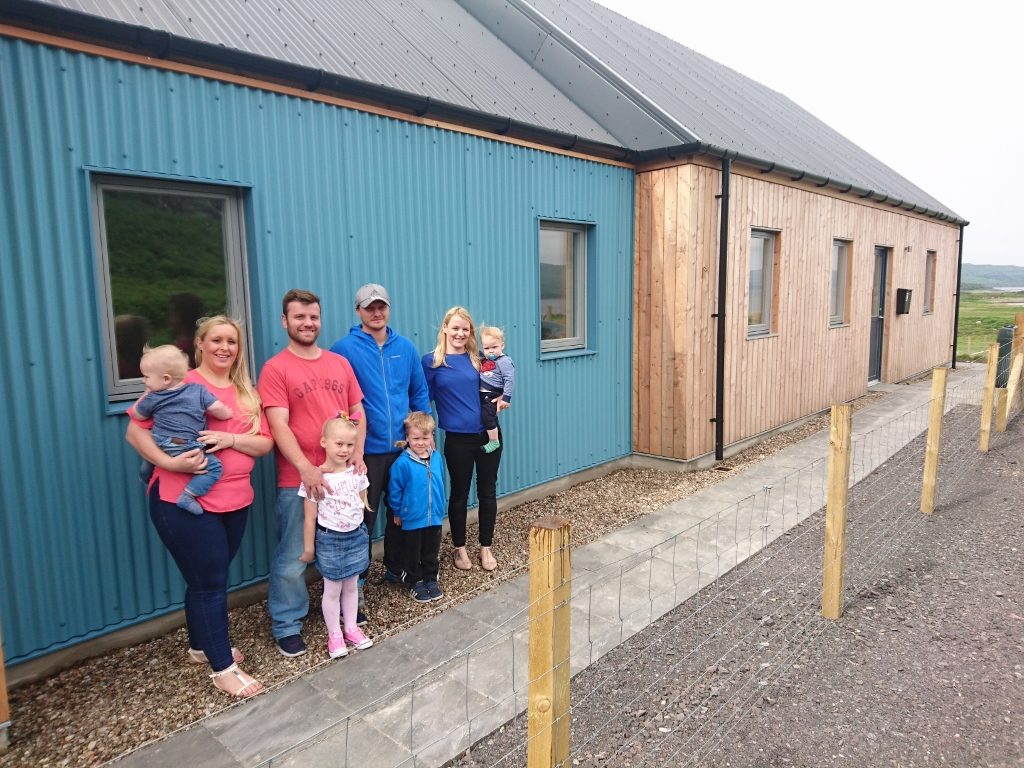Helen MacDonald, Mull and Iona Community Trust
The Ulva Ferry housing project was a community-led solution to addressing the long-term population decline of a fragile community on the Isle of Mull. The local primary school’s threatened closure in 2010 was the catalyst for the community to take drastic action for themselves, as no social housing provider wanted to build in this remote location.
Ulva School Community Association (USCA), set up to fight to keep the school open, had ambitious plans to build two family sized houses which would be in keeping with the beautiful landscape and energy efficient, to combat the extreme fuel poverty prevalent in local housing stock. Soon realising the enormity of what they had embarked upon, they asked Mull and Iona Community Trust (MICT) – a long-established development trust – for support.

Just 7 years later, in June 2017, two family sized houses were completed, and the Ulva Ferry community welcomed two new families. But as anyone involved in community development projects knows, it is a long and rocky road to achieving your dreams. Building in remote, and particularly island, locations can add as much as 25% to costs when factoring in ferry transportation and installing private water supplies. Proving housing need – to access funding – in areas of historic population decline is notoriously difficult, and sustaining community participation in small communities over many years is never easy.
The houses were designed to passive house principles by local firm, Thorne Wyness Architects, using a cross-laminated timber frame, with a mechanical heat recovery system instead of traditional central heating, and large, south facing triple glazed windows. This non-traditional approach resulted in higher build costs, but the long-term benefits of high-quality design will be felt for years to come, and the benefit to tenants are direct and immediate: with the houses costing just £300 per house per year to heat.

Two houses might not seem like much, but in a small community it has had a huge impact: the school roll has increased by 50%; the increase of working age adults by 10% has helped support fragile local businesses. The confidence and pride felt by the community in seeing their years of hard work coming to fruition is immeasurable. And for the new tenants, for the first time they have secure lifetime homes, that are both affordable to rent, and to heat, enabling them to put down roots in this welcoming community.
So what next? The need for more affordable houses remains; MICT have carried out extensive feasibility work, and recently purchased another plot of land via the Scottish Land Fund. Our plan is to build four further houses for affordable rent, to ensure there are more pupils in the school, more working age adults to boost local employment, and older residents won’t need to move away: making a stronger community overall.
We have launched a fundraising appeal and would be grateful for any donations to support our plans to ensure the future sustainability of the fragile Ulva Ferry community: https://wonderful.org/appeal/ulvaferryaffordablehousing.
Facebook: www.facebook.com/ulvaferryldo/
Twitter: @UFLDO
Instagram: @ulvaferryldo
